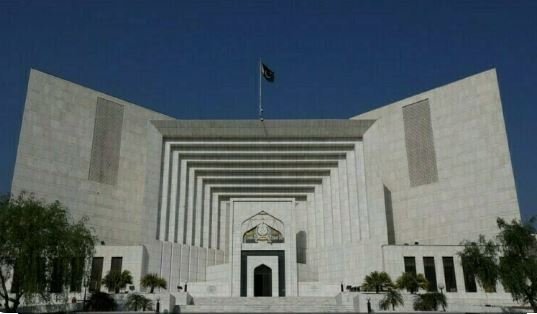ISLAMABAD – Justice Jamal Khan Mandokhail on Wednesday raised critical questions regarding the necessity of amending the Constitution to conduct trials of terrorists in military courts.
Justice Mandokhail inquired why military trials did not occur despite the presence of the Army Act and coordination mechanisms.
A Supreme Court seven-member constitutional bench led by Justice Aminuddin Khan continued hearing the case on military court trials for civilians.
Advocate Khawaja Haris, representing the Ministry of Defence, presented his arguments during the session.
Khawaja Haris began by stating that the nature of a crime determines the appropriate trial forum. If a civilian’s crime is connected to the armed forces, the trial is referred to a military court.
Justice Jamal Khan Mandokhail remarked that the court could examine intent and questioned the purpose behind the crime, asking whether it was against national interests. Khawaja Haris responded that these inquiries pertain to evidence, which the Supreme Court cannot review directly.
Justice Muhammad Ali Mazhar emphasized that intent is determined during the trial. Justice Mandokhail added that while evidence is crucial, foundational principles must first be established, asking for clarity on the scope of “Defence of Pakistan.”
The Ministry of Defence’s lawyer explained that threats of war fall under the purview of Pakistan’s defense. Justice Mandokhail then raised questions about the necessity of the 21st Constitutional Amendment for military trials, referencing high-profile incidents like the GHQ attack and Karachi Airbase assault, which were not tried in military courts despite the Army Act’s existence.
The lawyer clarified that the amendment expanded the scope of crimes beyond discipline and duty-related offenses to include various other acts. Justice Mandokhail further questioned the trial procedures for terrorist acts carried out under the guise of religion or by terrorist groups.
Justice Hassan Azhar Rizvi recalled media reports about individuals being abducted and some released, querying the trial process in such scenarios. Justice Muhammad Ali Mazhar emphasized that the court is not reviewing the nature of crimes but examining whether the relevant clauses of the Army Act align with the Constitution.
During the hearing, Advocate Faisal Siddiqi remarked, humorously, that he might consider practicing in military courts after hearing Khawaja Haris’s arguments.
Justice Mazhar responded that the decisions must be made first, after which everyone could pursue their practice where they choose.
The session also revisited discussions surrounding the 21st Constitutional Amendment, with references to debates in Parliament and emotional moments from lawmakers.
Justice Mandokhail highlighted the principled stance of a former Senate chairman who reluctantly voted in favor of the amendment.
After hearing Khawaja Haris’s arguments, the court adjourned the hearing until the following day.









